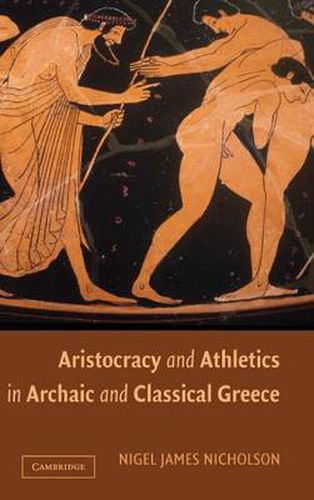Readings Newsletter
Become a Readings Member to make your shopping experience even easier.
Sign in or sign up for free!
You’re not far away from qualifying for FREE standard shipping within Australia
You’ve qualified for FREE standard shipping within Australia
The cart is loading…






Athletics represented an important institution through which the Greek aristocracies sought to maintain their privileged political position. Victory had always involved the use of those in lower classes, such as charioteers, jockeys, and trainers. In the late archaic and early classical period, the relationship between the victors and these helpers changed radically, which threatened the political value of athletics, and undermined the utility of the institution for aristocrats. Nigel Nicholson examines how aristocrats responded to these changes through a study of victory memorials. New Historicist in method, the book draws on odes, dedications, vases, and coins, as well as anecdotes about the victors. It asks how the vulgar details of winning are represented by the memorials; and it assumes that the value of athletics was always under threat, from groups inside and outside the elite. The result is a fascinating look at one area of social struggle in ancient Greece.
$9.00 standard shipping within Australia
FREE standard shipping within Australia for orders over $100.00
Express & International shipping calculated at checkout
Athletics represented an important institution through which the Greek aristocracies sought to maintain their privileged political position. Victory had always involved the use of those in lower classes, such as charioteers, jockeys, and trainers. In the late archaic and early classical period, the relationship between the victors and these helpers changed radically, which threatened the political value of athletics, and undermined the utility of the institution for aristocrats. Nigel Nicholson examines how aristocrats responded to these changes through a study of victory memorials. New Historicist in method, the book draws on odes, dedications, vases, and coins, as well as anecdotes about the victors. It asks how the vulgar details of winning are represented by the memorials; and it assumes that the value of athletics was always under threat, from groups inside and outside the elite. The result is a fascinating look at one area of social struggle in ancient Greece.